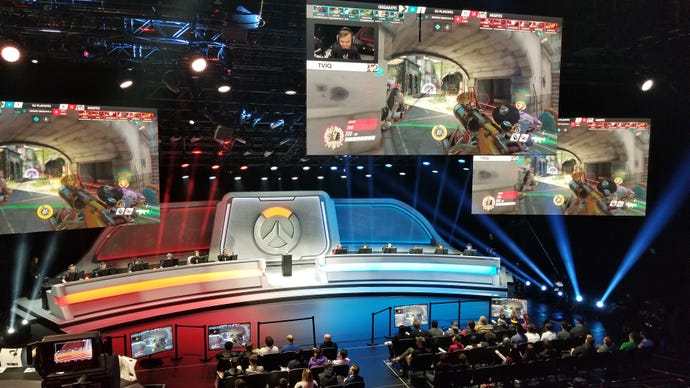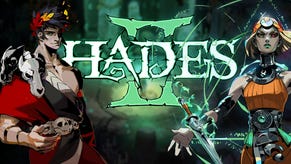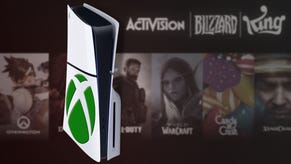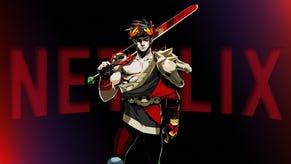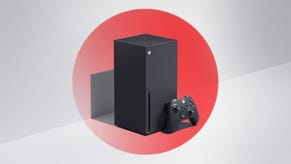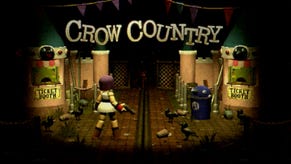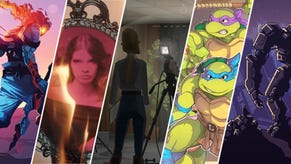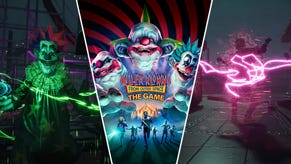Inside the Launch of Blizzard's Ambitious New Overwatch League
We visited Blizzard's new esports arena and talked to Overwatch League commissioner Nate Nanzer about Blizzard's plan to build a "forever sport".
This article first appeared on USgamer, a partner publication of VG247. Some content, such as this article, has been migrated to VG247 for posterity after USgamer's closure - but it has not been edited or further vetted by the VG247 team.
Growing up in Seoul, South Korea, I was surrounded by a proto-esports environment. Over the years esports has expanded beyond the small confines of South Korean pop culture to become a growing presence in worldwide gaming. It's why I jumped at the opportunity to get a closer look at Blizzard's Overwatch League, which aims to introduce a new dynamic to esports with localized teams and traditional franchising structures. Using the massively popular Overwatch as a launchpad, Blizzard's aiming to kick off a new esports league whose scale and ambition could potentially start a new chapter for esports.
To find out more I traveled to Burbank, California to visit the opening of the new Blizzard Arena. While there I also got a chance to check out the Overwatch Contenders Finals, a showcase tournament leading up to the launch of the Overwatch League. What I saw that weekend reminded me a lot about how far esports have come since my days in Seoul, and how both the industry and fan community has evolved in a way that envisions a far more prominent place for esports in mainstream entertainment.
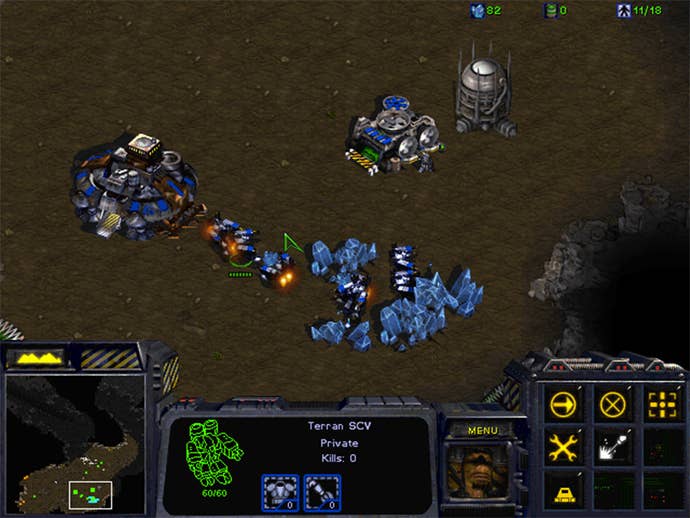
Esports as I remember it
At some point in my life I became embarrassed by South Korea's status as an "esports country." Maybe it had something to do with the fact that I never played StarCraft growing up, but was assumed to have because I'm Korean. Either way, it rubbed me the wrong way after awhile.
It feels weird to say this, but the current esports craze in the video game industry has given me a weird Back to the Future vibe. By the time I left South Korea, StarCraft was a dominant pop culture fixture in ways I don't think a lot of people really understand. It wasn't just because South Korea was paying professional gamers years before anyone else, or that major competitions were hosted on major television networks long before North America's ESPN or Disney XD.
In South Korea, StarCraft was literally everywhere, from branding on clothes to labels on food. It was in everyday conversations with classmates who expressed admiration for top players like BoxeR like household names. Posters for the game were plastered across the dirty windows of the city's seemingly infinite PC bangs—cafes where for an hourly fee patrons could use a gaming computer to play whatever they wanted. But while it was StarCraft then, it's Overwatch and League of Legends today.
Now I'm seeing esports in mid-construction, from a position where it's my job to report on the development of the machine, and to comment on its progress. Yet it feels like I've already seen the ending, and now I get to witness its engineering in reverse. Only I don't know if the new global-mindedness of esports will even look like the version of it that I grew up with.
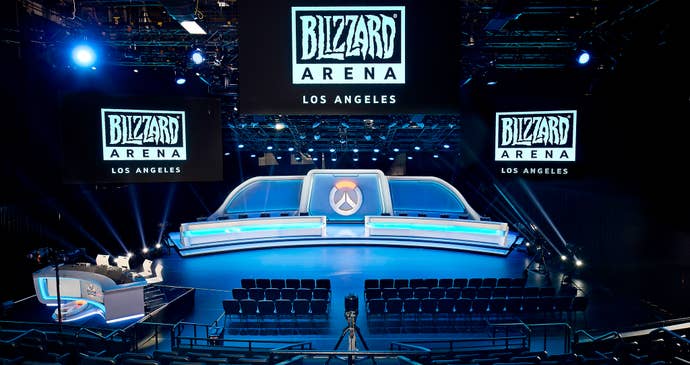
Esports as Blizzard Sees It
The Overwatch League is a new approach to esports, with Blizzard investing heavily in setting up the organization like you would see in traditional sports. Previously, esports teams were private organizations affiliated more with their brand than anything else. For the Overwatch League, Blizzard teamed up with both endemic esports organizations and traditional sports team owners like Robert Kraft (who owns the New England Patriots) to set up Overwatch teams based in major cities. 12 major cities across Asia, Europe, and the United States are fielding teams for the League, with Blizzard promising more as the Overwatch League grows.
Working within a traditional sports structure so that the Overwatch League resembles the NFL could shield it from reports that suggests the current esports industry is heading towards a bubble. One data report from 2016 reported that 77 percent of the revenue is indirect, or made through advertising and sponsorship. Compare this with traditional sports leagues like the NFL and NBA, whose profits from advertisers and sponsors are a fraction of those in esports.
With Blizzard encouraging regional Overwatch teams to grow a new franchise organically, it's possible that the Overwatch League can grow a healthy and dedicated consumer base for each of its major teams.
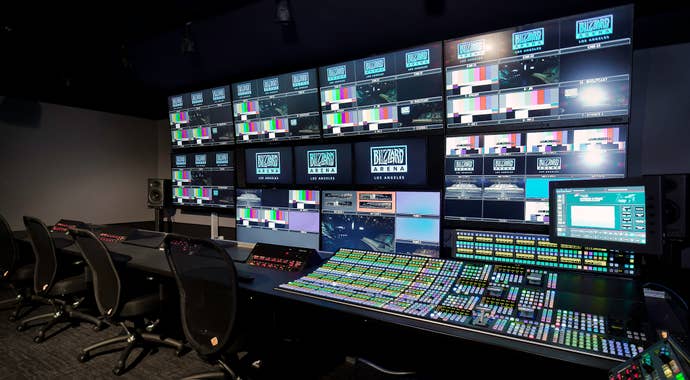
At the opening gala hosted at the Blizzard Arena, the opening toast brought attention to the fact that the home of Overwatch for the next year (and other Blizzard esports) is in the former studio of The Tonight Show with Johnny Carson. Our MC explained that with time, Blizzard can continue the entertainment legacy it inherited by moving into the studio. Presumably, Blizzard's great hope is that esports becomes as mainstream to pop culture as The Tonight Show.
There's a lot of people here. From the local press, Blizzard employees, and invited guests—many who work with one of the many new esports businesses that have cropped up in recent years as a result of the rapid rise of popularity of esports in North America. We talk about the new Arena and about esports in general with a mix of curiosity, uncertainty, and even a little anxiety. A lot of those I spoke to work for esports start-ups who no doubt are unsure if their company will even last the next five years.
The Blizzard Arena is much nicer in-person than the pictures Blizzard emailed me before the event. The sprawling complex is different than say, the Staples Center where the League of Legends 2016 Worlds was held. The Blizzard Arena is a television studio reborn with all the tools necessary to put on a top-notch broadcast, but modernized with esports in mind. The screen placement, I'm told, took some different iterations until it was just right for viewing on.
Either way, my admiration for the arena is an opinion I share with Overwatch League Commissioner Nate Nanzer as I sit down for an interview. "The stage we have there now is the one we use for World Cup, group stages, and Contenders. For the Overwatch League we're gonna have a completely new stage that I'm excited for people to see," Nanzer told me. As the commissioner of the Overwatch League, Nanzer is in charge of overseeing the whole of Overwatch's esports ambitions.
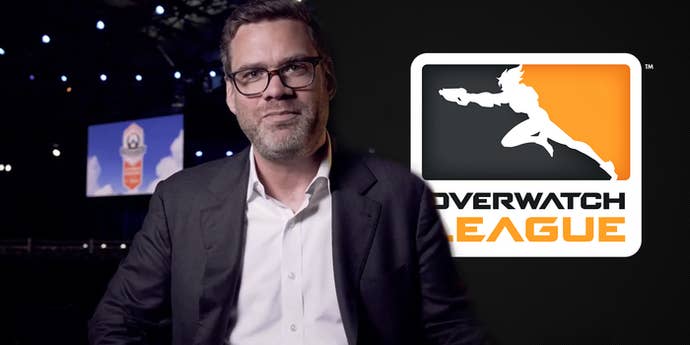
I told Nanzer that it feels like the Overwatch League, announced at Blizzcon 2016, is just now coming together. This is something Nanzer attributes to the fact that the Overwatch League spent years preparing for this moment and is only now finally ready to unveil the hard labor behind setting up an entire sport. "Esports is a fast moving industry," says Nanzer, "I think it feels like things are moving really quick because we had that period from Blizzcon last year until this summer where we didn't have a lot of news and we didn't say anything about Overwatch League. Everyone was like 'hey, what's going on with Overwatch League?' and now since we announced our first seven teams it's just been like every week there's a big piece of news coming out."
According to Nanzer, the potential for Overwatch as an esport was evident from its core concept as a 6v6 competitive shooter. The Overwatch League has been in the works for over two years, and Nanzer says that the opportunity to build something new in the esports space is tantalizing. "I think it's important to remember we're taking a very long-term view on Overwatch League," says Nanzer. "The goal here is not like if we don't have a huge hit out of the gate we're going to pack up our things and go home. This is something we view [like] we're building a forever sport."
If there's uncertainty from fans and spectators about whether the Overwatch League can succeed, Nanzer doesn't seem to mind. "I think we're reading different forums," says Nanzer after I share some of the uncertainty I've read online about the Overwatch League. "Anytime you do something completely brand new that has never been done in the history of the world—like no one's ever sold 12 esports franchises before—we just did that. This is something that's a little bit new, [a] little bit different, and I think it's only natural for people to be skeptical of new things. [But] I don't think people should worry."
I told Nanzer that I've already seen the kind of mainstream excitement for esports from my time in South Korea, and I was curious if the Overwatch League even had the potential to generate the same kind of dominance in western pop culture. That same excitement, Nanzer notes, is what Blizzard's aiming for; it's what they want to bring to fans all around the world. "We're building an entire sport. The Overwatch League is sort of the pinnacle of the entire competition but we're really trying to be thoughtful of how we build up the entire sport of Overwatch."
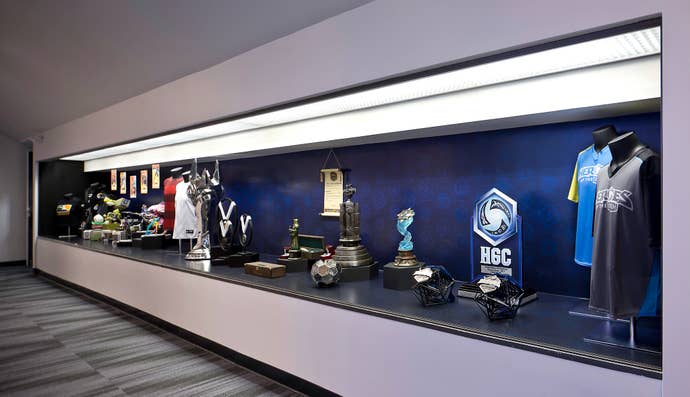
Overwatch League as Fans See It
While watching the Overwatch European Contenders finals from the Blizzard Arena press room, I realized I could actually hear the crowd's excited screams from our isolated media room. This is despite the fact that the press room is very well insulated from noise which speaks volumes for—well, the volume of the fans.
During breaks and intermissions between games, I went around the Arena's sold-out crowd to talk to Overwatch fans. If anything was going to be the best indicator for how the Overwatch League has been shaping up, it would be from the fans.
"I am a huge Overwatch fan. I came here from three hours away, Tijuana [in] Baja California, Mexico," said Charleett, an Overwatch fan who drove up for the weekend to watch the finals live. "I follow Overwatch pretty closely, since the end of the World Cup last year. It's pretty sick."
Charleett tells me that she's particularly excited about the localized structure, even without a Mexico team. "Nomy got on the San Francisco team so I'm pretty excited about that," Charleett says, referring to the Mexican Overwatch player.
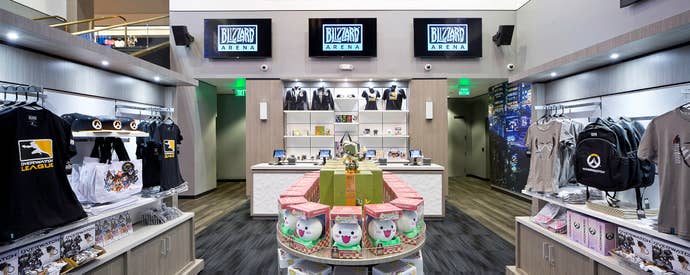
I also spoke with a couple from nearby Los Angeles, who didn't want to be named for this piece but were more than happy to tell me about their love for Overwatch. "It's really contemporary in terms of sports," said the male fan, "I like how they set up salaries and everything, and make it professional and it benefits the players. It's pretty lit."
Another fan, who asked not to be named, flew out all the way from Hawaii to watch the Contenders game. She told me that she's been following Contenders for a while. "Ever since they first started," she says. "I love Team Envy... or Dallas Fuel right?"
While she said that some of her friends are into the Overwatch League, she's way more into the pro-scene than her friends. "I flew here from Hawaii just to watch. I watch APEX so I keep up with Korean stuff too!"
Everywhere I went I found fans who travelled long distances to see one of the last big games before the Overwatch League. It wasn't just fans from neighboring states or countries either. Frankie P, an employee at the Chinese video game giant Tencent, came all the way from China with his girlfriend for his vacation just to watch Overwatch Contenders.
"I'm a big fan of Blizzard actually. I like all their games," said Frankie. China is one of the biggest esports markets in the world with Niko Partners projecting that esports is expected to grow $1.26 billion in 2017. Does China's support of esports signify a huge boon for Blizzard? "[A year ago Overwatch] was so popular in China, it was so crazy. But right now I think things kind of little bit dropped—but I still like it."
Blizzard recently signed on a Shanghai Overwatch League team called the Shanghai Dragons. The team is operated by Chinese internet giant NetEase. I even asked Frankie if he was excited to root for the Chinese team, but Frankie told me that it wasn't that big of an attraction for him. "Doesn't matter, I love the game!"
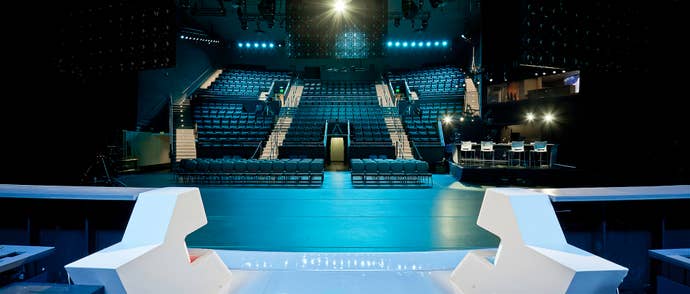
The Overwatch League
Overwatch has an undeniable drawing power. The fact that fans travel across the globe to watch their favorite players compete in-person speaks to that. While it's still too early to say whether or not the Overwatch League format is the future of esports, there's no doubt in my mind that there's an audience for Overwatch in particular.
Southern California is an entertainment destination mecca, so when people come here and choose to spend the weekend watching Overwatch rather than going to Disneyland, it's a pretty strong indicator that there is genuine mainstream appeal in esports. Maybe there will even be a point where the Johnny Carson Tonight Show fact becomes more of a footnote of the Blizzard Arena, instead of its defining feature.
Update: An earlier version of this story mistook the Overwatch player Nomy for NoMi. Similarly the story mispelled the name of one of our interviewed fans. We have corrected these errors.
